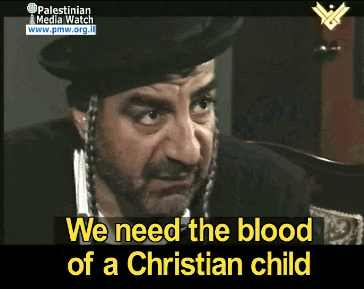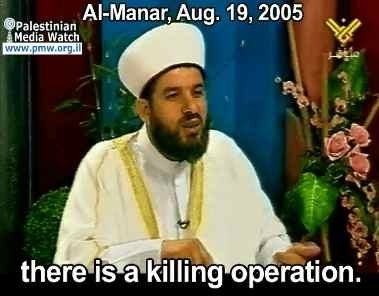Introduction, by Concerned Citizen:
Many, including myself, have been disappointed in Israel's civilian (and perhaps military) leadership in the current war in Lebanon. As a result of a lack of apparent experience, boldness or conviction (or all of the above), Israel has followed what at best can be described as a conventional, incremental military strategy, which has neither achieved the core objective of knocking out Hezbollah missile and rocket attacks on Israel, or otherwise dealt a harsh blow and decisive victory that would serve to re-establish Israel's deterrent position to its foes. Instead Hezbollah has siezed the initiative and persevered, continued the rocket attacks, and fought the Israelis toe-to-toe, achieving a significant victory in Arab public opinion. Israel now has lost any element of strategic or tactical surprise in attempting to root out its enemy on the ground. The tentativeness that Israel shows in launching this campaign is also somewhat disturbing, and again, of no use to Israel's psychological deterrence of its enemies. And worst for the Israelis, casualties will be no lower for them by having waited this long, instead of pursuing a bold ground attack strategy at the beginning of this conflict. And the Lebanese continue to suffer.
Don't get me wrong -- this is a bad situation no matter what the Israelis do and will not be solved by military measure alone, but as you will read below, it will probably only now get worse for the Israelis and the Lebanese, unless, perhaps, the Israelis go back to being themselves, take the strategic initiative and go for the jugular of Hezbollah -- that is, apply military pressure on the Syrian regime directly (but not seek to conquer Syria, as Stratfor discusses below), as we have discussed previously.
Stratfor Intelligence: Analysis of Strategic Options in Lebanon
SPECIAL REPORT
07.21.2006
Red Alert: The Battle Joined
The ground war has begun. Several Israeli brigades now appear to be operating between the Lebanese border and the Litani River. According to reports, Hezbollah forces are dispersed in multiple bunker complexes and are launching rockets from these and other locations.
Hezbollah's strategy appears to be threefold. First, force Israel into costly attacks against prepared fortifications. Second, draw Israeli troops as deeply into Lebanon as possible, forcing them to fight on extended supply lines. Third, move into an Iraqi-style insurgency from which Israel -- out of fear of a resumption of rocket attacks -- cannot withdraw, but which the Israelis also cannot endure because of extended long-term casualties. This appears to have been a carefully planned strategy, built around a threat to Israeli cities that Israel can't afford. The war has begun at Hezbollah's time and choosing.
Israel is caught between three strategic imperatives. First, it must end the threat to Israeli cities, which must involve the destruction of Hezbollah's launch capabilities south of the Litani River. Second, it must try to destroy Hezbollah's infrastructure, which means it must move into the Bekaa Valley and as far as the southern suburbs of Beirut. Third, it must do so in such a way that it is not dragged into a long-term, unsustainable occupation against a capable insurgency.
Hezbollah has implemented its strategy by turning southern Lebanon into a military stronghold, consisting of well-designed bunkers that serve both as fire bases and launch facilities for rockets. The militants appear to be armed with anti-tank weapons and probably anti-aircraft weapons, some of which appear to be of American origin, raising the question of how they were acquired. Hezbollah wants to draw Israel into protracted fighting in this area in order to inflict maximum casualties and to change the psychological equation for both military and political reasons.
Israelis historically do not like to fight positional warfare. Their tendency has been to bypass fortified areas, pushing the fight to the rear in order to disrupt logistics, isolate fortifications and wait for capitulation. This has worked in the past. It is not clear that it will work here. The great unknown is the resilience of Hezbollah's fighters. To this point, there is no reason to doubt it. Israel could be fighting the most resilient and well-motivated opposition force in its history. But the truth is that neither Israel nor Hezbollah really knows what performance will be like under pressure.
Simply occupying the border-Litani area will not achieve any of Israel's strategic goals. Hezbollah still would be able to use rockets against Israel. And even if, for Hezbollah, this area is lost, its capabilities in the Bekaa Valley and southern Beirut will remain intact. Therefore, a battle that focuses solely on the south is not an option for Israel, unless the Israelis feel a defeat here will sap Hezbollah's will to resist. We doubt this to be the case.
The key to the campaign is to understand that Hezbollah has made its strategic decisions. It will not be fighting a mobile war. Israel has lost the strategic initiative: It must fight when Hezbollah has chosen and deal with Hezbollah's challenge. However, given this, Israel does have an operational choice. It can move in a sequential fashion, dealing first with southern Lebanon and then with other issues. It can bypass southern Lebanon and move into the rear areas, returning to southern Lebanon when it is ready. It can attempt to deal with southern Lebanon in detail, while mounting mobile operations in the Bekaa Valley, in the coastal regions and toward south Beirut, or both at the same time.
There are resource and logistical issues involved. Moving simultaneously on all three fronts will put substantial strains on Israel's logistical capability. An encirclement westward on the north side of the Litani, followed by a move toward Beirut while the southern side of the Litani is not secured, poses a serious challenge in re-supply. Moving into the Bekaa means leaving a flank open to the Syrians. We doubt Syria will hit that flank, but then, we don't have to live with the consequences of an intelligence failure. Israel will be sending a lot of force on that line if it chooses that method. Again, since many roads in south Lebanon will not be secure, that limits logistics.
Israel is caught on the horns of a dilemma. Hezbollah has created a situation in which Israel must fight the kind of war it likes the least -- attritional, tactical operations against prepared forces -- or go to the war it prefers, mobile operations, with logistical constraints that make these operations more difficult and dangerous. Moreover, if it does this, it increases the time during which Israeli cities remain under threat. Given clear failures in appreciating Hezbollah's capabilities, Israel must take seriously the possibility that Hezbollah has longer-ranged, anti-personnel rockets that it will use while under attack.
Israel has been trying to break the back of Hezbollah resistance in the south through air attack, special operations and probing attacks. This clearly hasn't worked thus far. That does not mean it won't work, as Israel applies more force to the problem and starts to master the architecture of Hezbollah's tactical and operational structure; however, Israel can't count on a rapid resolution of that problem.
The Israelis have by now thought the problem through. They don't like operational compromises -- preferring highly focused solutions at the center of gravity of an enemy. Hezbollah has tried to deny Israel a center of gravity and may have succeeded, forcing Israel into a compromise position. Repeated assaults against prepared positions are simply not something the Israelis can do, because they cannot afford casualties. They always have preferred mobile encirclement or attacks at the center of gravity of a defensive position. But at this moment, viewed from the outside, this is not an option.
An extended engagement in southern Lebanon is the least likely path, in our opinion. More likely -- and this is a guess -- is a five-part strategy:
1. Insert airmobile and airborne forces north of the Litani to seal the rear of Hezbollah forces in southern Lebanon. Apply air power and engineering forces to reduce the fortifications, and infantry to attack forces not in fortified positions. Bottle them up, and systematically reduce the force with limited exposure to the attackers.
2. Secure roads along the eastern flank for an armored thrust deep into the Bekaa Valley to engage the main Hezbollah force and infrastructure there. This would involve a move from Qiryat Shimona north into the Bekaa, bypassing the Litani to the west, and would probably require sending airmobile and special forces to secure the high ground. It also would leave the right flank exposed to Syria.
3. Use air power and special forces to undermine Hezbollah capabilities in the southern Beirut area. The Israelis would consider a move into this area after roads through southern Lebanon are cleared and Bekaa relatively secured, moving into the area, only if absolutely necessary, on two axes of attack.
4. Having defeated Hezbollah in detail, withdraw under a political settlement shifting defense responsibility to the Lebanese government.
5. Do all of this while the United States is still able to provide top cover against diplomatic initiatives that will create an increasingly difficult international environment.
There can be many variations on this theme, but these elements are inevitable:
1. Hezbollah cannot be defeated without entering the Bekaa Valley, at the very least.
2. At some point, resistance in southern Lebanon must be dealt with, regardless of the cost.
3. Rocket attacks against northern Israel and even Tel Aviv must be accepted while the campaign unfolds.
4. The real challenge will come when Israel tries to withdraw.
No. 4 is the real challenge. Destruction of Hezbollah's infrastructure does not mean annihilation of the force. If Israel withdraws, Hezbollah or a successor organization will regroup. If Israel remains, it can wind up in the position the United States is in Iraq. This is exactly what Hezbollah wants. So, Israel can buy time, or Israel can occupy and pay the cost. One or the other.
The other solution is to shift the occupational burden to another power that is motivated to prevent the re-emergence of an anti-Israeli military force -- as that is what Hezbollah has become. The Lebanese government is the only possible alternative, but not a particularly capable one, reflecting the deep rifts in Lebanon.
Israel has one other choice, which is to extend the campaign to defeat Syria as well. Israel can do this, but the successor regime to Syrian President Bashar al Assad likely would be much worse for Israel than al Assad has been. Israel can imagine occupying Syria; it can't do it. Syria is too big and the Arabs have learned from the Iraqis how to deal with an occupation. Israel cannot live with a successor to al Assad and it cannot take control of Syria. It will have to live with al Assad. And that means an occupation of Lebanon would always be hostage to Syrian support for insurgents.
Hezbollah has dealt Israel a difficult hand. It has thought through the battle problem as well as the political dimension carefully. *Somewhere in this, there has been either an Israeli intelligence failure or a political failure to listen to intelligence. Hezbollah's capabilities have posed a problem for Israel that allowed Hezbollah to start a war at a time and in a way of its choosing. The inquest will come later in Israel. And Hezbollah will likely be shattered regardless of its planning. The correlation of forces does not favor it. But if it forces Israel not only to defeat its main force but also to occupy, Hezbollah will have achieved its goals *(emphasis added by Concerned Citizen)*.*


